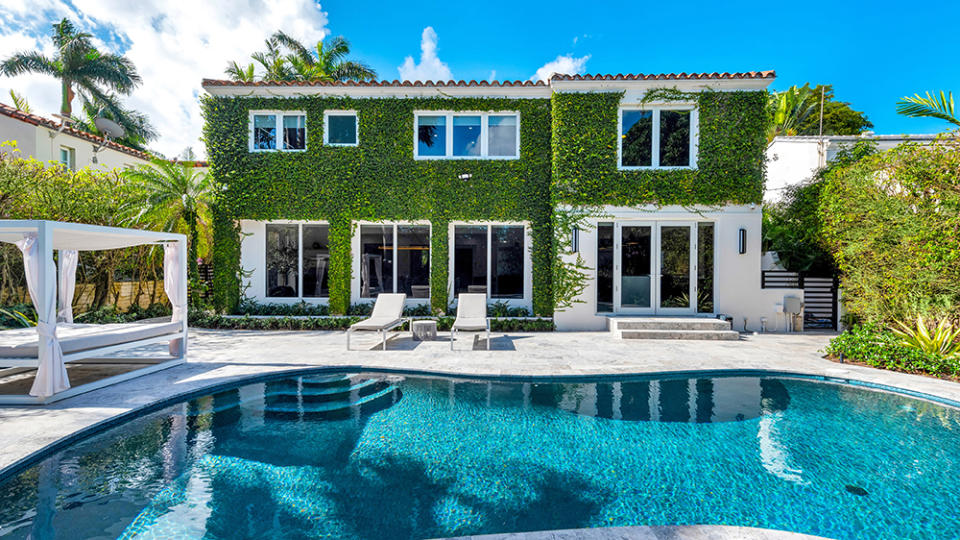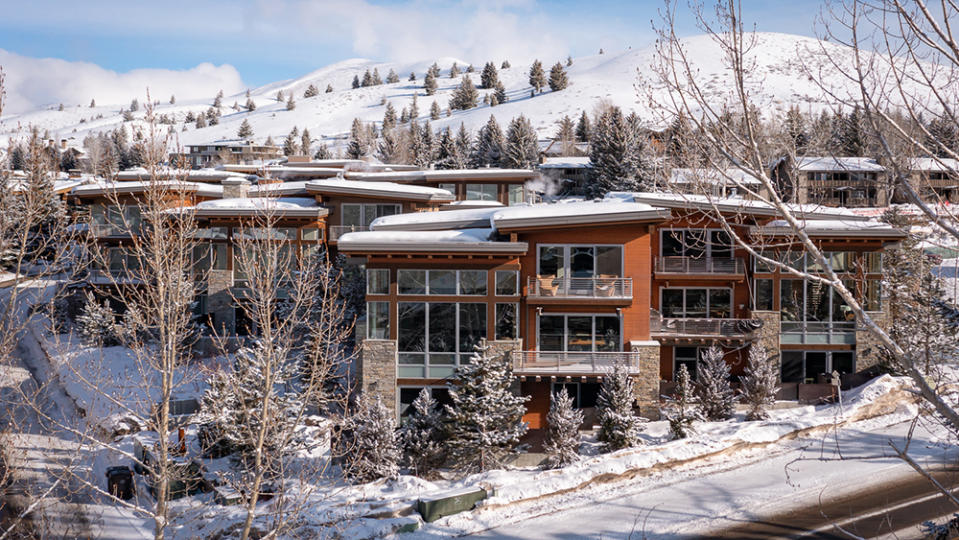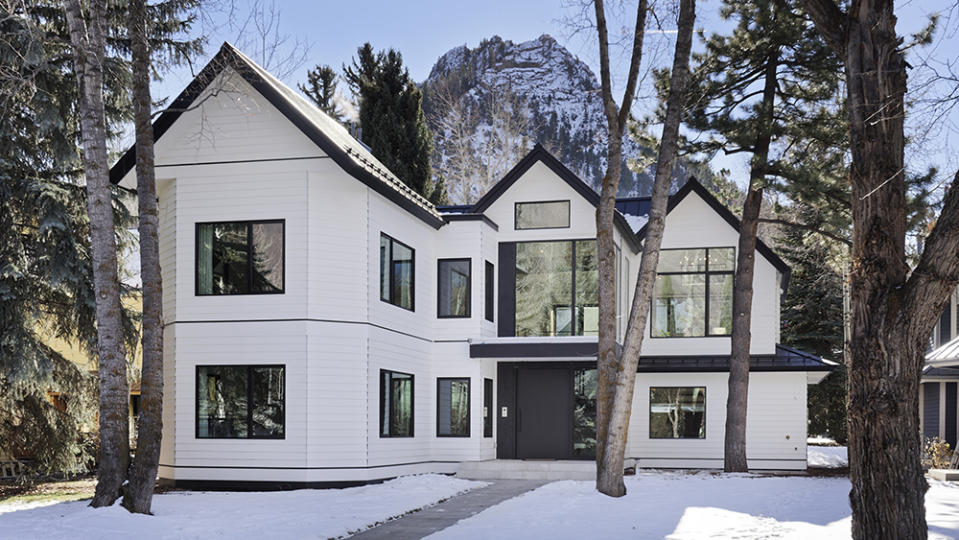Time-Share in a Tuxedo? The Pacaso App Helps You Buy a Luxury Home With up to 7 Other People

Real estate has remained such a solid asset class that a slew of online investment platforms for commercial properties have popped up in recent years. Services such as Yieldstreet, CrowdStreet, Fintor and others leverage the power of crowdsourcing to allow for smaller shares of in-the-works developments to be purchased. In such scenarios, dozens or even hundreds of investors pool funds to buy into a project, not unlike owning shares of a corporation.
With that trend gaining speed and the recent boom in second- and third-home ownership as a backdrop, it makes sense that a new platform would emerge—and more are coming—to bring the same crowdsourcing idea to residential purchases. Enter former Zillow exec Austin Allison and his start-up, Pacaso, which enables up to eight families to own a fraction of a luxury vacation home. Allison says he was spurred toward founding the company when he realized his own second home sat vacant all too often, which seemed like a market inefficiency. And he’s not alone: More than 30 million second homes in the US collect dust for roughly 11 months of the year.
More from Robb Report
This Wellness-Focused Connecticut Manse Comes With a Vertical Garden and Its Own Juice Bar
Home of the Week: This $33 Million Gilded Age Manse Is One of NYC's Largest Single-Family Homes
This $48 Million Italian-Style Miami Villa Has a Boat Slip and 300 Feet of Private Waterfront
Through Pacaso, for $5 million, a buyer can own an eighth of a $40 million mountain retreat in Aspen or beach villa in Fort Lauderdale. But the moment you mention fractional ownership, a dreaded, often down-market concept comes to mind: Is this just lipstick on the time-share pig? Time-shares—where families buy a week or two a year of a condo or converted hotel room—blew up in the 1980s and ’90s, first in a good way, and then in a bad one, as maintenance, quality and deed transfership became problematic, leading to devaluation, according to Stephen Kliegerman, president of Brown Harris Stevens Development Marketing. While Pacaso claims to be different, “It’s a time-share in a tuxedo,” says Michael Carucci, executive vice president of Gibson Sotheby’s International Realty.
Pacaso prefers the term “co-ownership” over fractional ownership, and in truth, there are key differences between Pacaso’s single-house model and the time-share version. The company scours coveted destinations (everywhere from Palm Springs, Napa and Malibu to Miami, Telluride and Tahoe) for properties that fit its paradigm of desirable location and luxury and scoops them up. Then Pacaso’s in-house director of interior design decorates and furnishes the home to suit its unique style and location (think modern finishes, smart tech and creative decor). The company then forms an LLC and buyers can purchase as many as four one-eighth shares, all executed anonymously, so one never knows or meets the other shareholders.

Chris Pachello/Pacaso
Once fully sold, the property belongs 100 percent to the LLC and Pacaso continues on as property manager. Allison says Pacaso aims to simplify second-home ownership by removing all friction points. Arrive at an immaculate home, with the pool recently cleaned, landscaping manicured. All utilities handled. Since short-term rentals are prohibited, shareholders don’t have to worry about their multimillion-dollar home being invaded by dubious characters. Every Pacaso house features locker space for each owner to store surfboards, golf clubs, ski equipment or even mementos to make the home feel more personalized. But you’ll still have to lug all your luggage; there’s no keeping an auxiliary wardrobe in the walk-in closet.
While Pacaso allows buyers to co-own a bigger home with more bells and whistles for their investment, Kliegerman asks, “If you have $5 million to spend, do you really want to share a house and be locked into scheduling a calendar with seven other families? At that level, you probably have additional options, where you could buy your own place and then rent it out and make money on it yourself.”
Shareholders are entitled to 44 nights per year/share and guaranteed access to at least one marquee date (e.g., federal holiday, popular local events, etc.) per year. Reservations are made via Pacaso’s SmartStay app eight days to 24 months in advance. All home-operating costs—property management, maintenance and landscaping, utilities, taxes and repairs—are passed along directly to owners transparently with no markup, all divvied up pro rata. In addition, owners pay a $99 monthly fee that covers LLC oversight, ongoing owner support and the app.

Pacaso
But, as Kliegerman says, “What happens when Family D stays there and their kid breaks something—who pays for that?” Pacaso’s spokesperson says that while a reserve fund covers limited-life items such as a dishwasher, “each owner is responsible for replacing or repairing items damaged as a result of their actions, such as a broken window. Kid sits on the glass table… that’s not Pacaso’s or the other owners’ fault.”
Turnkey residences were a priority for buyers over the past few years, according to Coldwell Banker’s 2022 Global Luxury Report, but Carucci thinks that could pose some problems in the Pacaso model with regard to financial returns. He points out that shareholders are buying into a property already marked up 20 to 30 percent from its actual value (a cost Pacaso explains with brokerage costs, upgrades, significant investment in design, appliances and furniture and LLC creation).
While Allison says co-owners can participate in “the equity appreciation if the home goes up in value in time,” a company spokesperson emphasizes that “a Pacaso home is not and should not be viewed as a speculative investment.” Rather, its goal is “to provide a place where families and their guests can relax and enjoy their home. That’s the sole and entire reason for the purchase.” But when was the last time someone bought a home without thinking about it as an investment, especially at the upper echelons of the market?

Petr Wiese/Pacaso
Carucci acknowledges the experiential benefits of Pacaso ownership but, he says, “I am 150 percent sure this is not a good liquid investment. The concept may have a practical use, but in my opinion this is not a blue-chip investment. You are overpaying from the start, and that is risky.”
Kliegerman agrees that valuations might be problematic, depending on the market. In a place like Jackson Hole, Wyo., where there are fewer brokered rental options, the house-share concept might make more sense and the value could be close to market value. But in a place like Vail, Colo., where there’s more housing stock, a home could be overpriced.
Skeptics aside, Allison seems to be making a financial splash: Pacaso generated nearly $300 million in revenue for its first full year, selling more than 400 units. And it has raised a total of $221 million in equity. Currently operating in 35-plus markets, servicing several hundred owners around the world—recently adding Ibiza, London and the Cotswolds—it’s getting big fast.
Still, Kliegerman isn’t convinced the model works best at the highest end, where affluent owners have many other options that might seem more flexible.
Best of Robb Report
Sign up for Robb Report's Newsletter. For the latest news, follow us on Facebook, Twitter, and Instagram.

